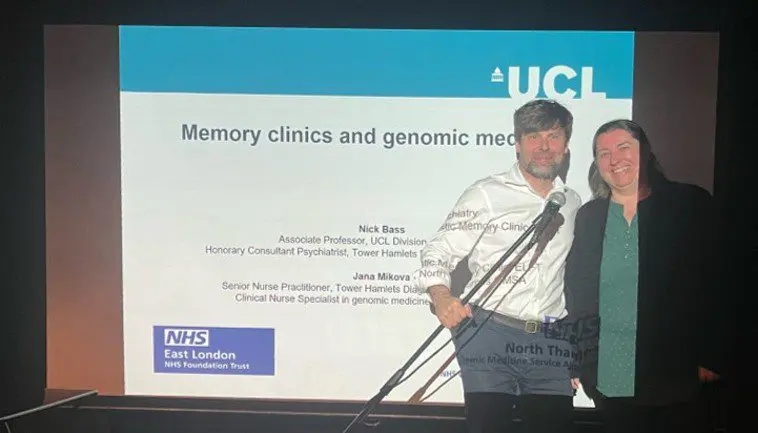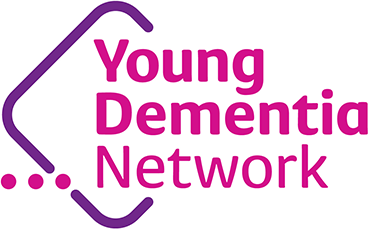The memory clinic and genomic medicine by Dr Nick Bass
I expect you have already heard the term genomic medicine in the news. However, if not you likely will very soon! Genomic medicine can be defined as medical practice that uses information from the whole of our DNA (our genome) to improve healthcare. This is being made possible by very rapid advances in DNA sequencing – reading of the sequence of bases along the DNA molecules.
The technological advances have largely been driven by the Human Genome Sequencing Project, which was completed over 20 years ago. The aim of the project was to sequence one human genome – and it was far from clear at the outset that this would be possible. Approximately 15 years and three billion dollars later the completion of the project was announced by President Clinton. Fast forward to 2023 and a human genome can be sequenced in a few hours at a cost of about $500! ‘Next generation DNA sequencing’ sounds very Star Trek but is already here and transforming genetic investigation of diseases in clinical practice.

In England the NHS Genomic Medicine Service (GMS) was launched in 2018 to, “harness the power of genomic technology and science to improve the health of our population and deliver on the commitments in the NHS Long Term Plan”. This represented a big change in the structure and processes of clinical genetics services in England. I will not go into the details here, but I want to highlight one important change – mainstreaming. Mainstreaming refers to the integration of diagnostic genetic testing into routine care. The idea is that this will improve access to and equity in genetic testing – no postcode lotteries. In practice, mainstreaming means that each speciality or service develops their own testing pathway for diagnostic testing (supported by the GMS) as opposed to referring to a clinical genetics service. And this very much includes dementia assessment services.
A large proportion of people diagnosed with dementia are diagnosed in mental health trust run memory clinics – including about 80% of people with young onset dementia. There are over 200 memory clinics in England, including the one where I work – Tower Hamlets Diagnostic Memory Clinic. When I started in the clinic 10 years ago it was technically possible to directly order a genetic test…but practically impossible. There were two main problems. Firstly, only one gene (or part of a gene) could be analysed at a time, and it was necessary to send samples to different laboratories to analyse different genes. Secondly, funding had to be agreed locally before any test could be ordered.
As a result, genetic testing tended only to be available at specialist centres and be the final stage of a, sometimes very long, diagnostic journey. Fast forward again and thanks to next generation sequencing 30 dementia associated genes can be comprehensively analysed in one single test. Furthermore, funding of testing has been hugely simplified – all genetic tests which are on the national genomic test directory are centrally funded. This means that if someone meets the published criteria for testing the test will be funded (if clinically appropriate). So now direct diagnostic genetic testing in the memory clinic has become practically possible as well.
The North Thames Genomic Medicine Service Alliance has set up a transformation project to promote and support the embedding of genetic investigation in memory clinics. A core part of the project is to develop a model clinical testing pathway, which individual services can adapt to suit their local needs. The pathway will consider all aspects of the testing process – from identification of people for whom testing should be offered, pre-test discussions, practicalities of testing, liaison with the genomic medicine service, feedback of results and post-diagnostic support.
And this is where we are hoping you can help! We really need input from people who have been through the testing process and their families. We know that people experience of genetic investigation is varied and there are definitely aspects that can be improved. We want to take this opportunity to develop the most user-centred pathway possible. If you have any comments/thoughts we would really like to hear from you.
Please do get in touch,
Nick and Jana
Nick Bass
Associate Professor, UCL Division of Psychiatry
Honorary Consultant Psychiatrist, Tower Hamlets Diagnostic Memory Clinic, East London NHS Foundation Trust
Email n.bass@ucl.ac.uk
Jana Mikova
Senior Nurse Practitioner, Tower Hamlets Diagnostic Memory Clinic, East London NHS Foundation Trust
Clinical Nurse Specialist in genomic medicine, North Thames GMSA
Email j.mikova@nhs.net
